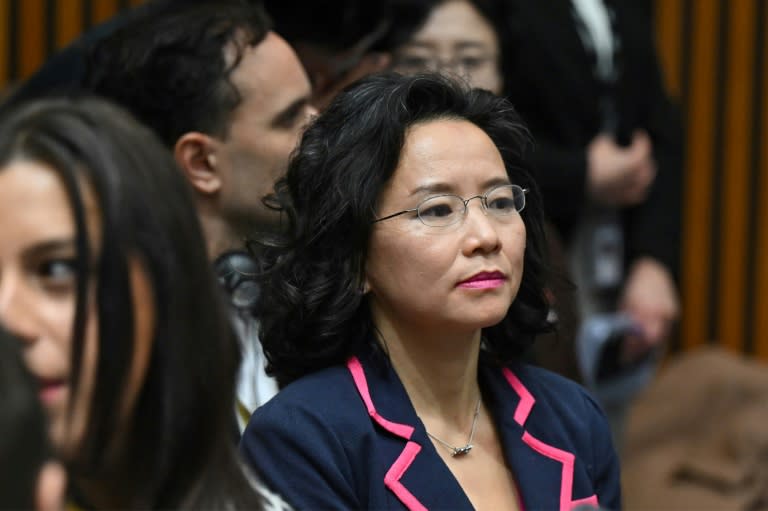Australia reporter says Chinese diplomats tried to 'block' her at event

An Australian journalist and former high-profile prisoner said Chinese officials tried to "block" her at a press conference in Canberra on Monday in an apparent attempt to stem negative coverage of Premier Li Qiang's visit.
A former anchor for Chinese state broadcaster CGTN, Cheng Lei spent three years detained in China on murky spying accusations before she was released to Australia in October 2023.
She has written extensively about the bleak conditions and tough treatment she faced while in detention.
Cheng, now working as a journalist for Sky News Australia, said Chinese officials tried to stop her being filmed when she arrived to cover Li's visit to the nation's parliament on Monday.
"They went to great lengths to block me from the cameras and to flank me," she told Sky News Australia.
"And I'm guessing that's to prevent me from saying something or doing something that they think would be a bad look," she told Sky News Australia.
"But that itself is a bad look."
Footage shows two individuals huddling next to Cheng at the media event, in what she says was an effort to stop her being filmed, before Australian officials intervene and move her to a new seat.
Australian media said the individuals were Chinese diplomats, but this could not be independently confirmed.
Prime Minister Anthony Albanese said he "didn't see" the incident, but that journalists should "be allowed to participate fully" inside the country's parliament.
Cheng was detained in China between August 2020 and October 2023, charged with "supplying state secrets overseas" in a case that many saw as politically motivated.
The mother of two had been a familiar face on the state broadcaster's English-language channel, conducting interviews with noted CEOs from around the world.
She was tried behind closed doors, with even Australia's ambassador to China blocked from entering the court to observe proceedings.
Cheng's case had been a serious point of friction between Canberra and Beijing.
China's ministry of state security said at the time that Cheng was deported after serving her time on charges of "illegally providing state secrets overseas".
sft/djw/smw


